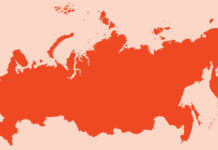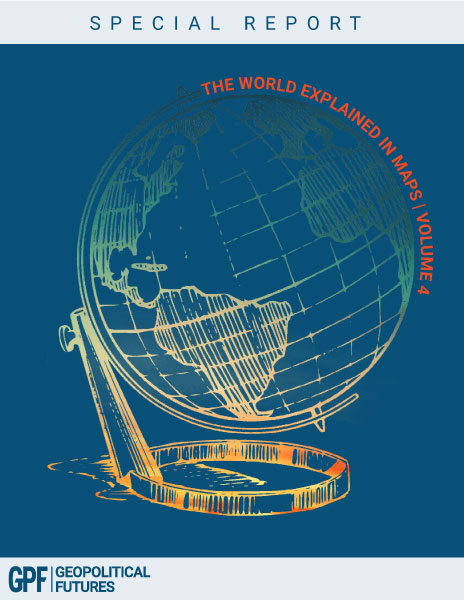During the Vietnam War, an American doctrine emerged whereby wars were primarily political and waging wars signaled to other powers that the U.S. was ready to fight wherever challenged. I call it “political war” because the intent was focused not on destroying the enemy but on establishing American credibility. It was characterized by an irrational confidence in America’s ability to rapidly defeat an enemy with minimal effort and loss. The United States failed to understand the will of the enemy, frequently because its leaders focused on warfighting technology as the measure of power, and in any case the war did not begin with a clear definition of victory.
From Vietnam to Afghanistan, the United States engaged an enemy far more willing than Washington to absorb casualties. Since the wars were not existential matters for the United States, its commitment was limited. For the North Vietnamese and the Taliban, the war was a moral absolute. It would be fought whatever the cost and with whatever weapons were available. Some wars ended in outright defeat, some (the exception being Desert Storm) ended in U.S. retreat and withdrawal. Few of these engagements convinced potential enemies of American power. Instead, they caused adversaries to misread American power and increased the risk that the U.S. would choose another elective war.
All nations go to war at some point in history, but the United States has spent most of the 21st century at war. The desire to use war as a signal of power, coupled with not understanding the amount of power needed to wage a successful war, raises the question of whether the U.S. has an interest in intervening in Ukraine if the Russians invade. I doubt a full-fledged invasion of Ukraine intended to occupy the entire country is in the offing, but thinking of such an invasion helps us to define current warfighting doctrine.
The United States has two strategic imperatives. First, it must maintain relations with Canada and Mexico, the two nations that could provide a base for a ground attack on the United States. Second, since the first is reasonably secure, it must make certain that it maintains control over the Atlantic and Pacific oceans, the only places that would facilitate offensive action against the United States.
Obviously this requires the U.S. to control the seas via naval, air and space power. But the challenge is subtler than that. World War II was for the United States a struggle to secure the seas. This is obvious in the Pacific but was also the case in the Atlantic. The American concern after the fall of France was that Britain might be forced to capitulate to Germany, and that capitulation would mean that the Royal Navy was to become a German navy. The Royal Navy was a challenge to the U.S. Navy, so this meant either a naval war in the Atlantic or even German control of the Atlantic.
That would have been catastrophic for the U.S., which responded by maintaining open sea lanes to Britain and supplying Britain with needed equipment. Even the land aspects of the war were partly designed to shift German resources away from the navy; the invasion of France was part of the strategy. U.S. strategy was ultimately to fight in Europe to prevent German threats to the United States.
During the Cold War, the United States feared a Soviet invasion of Western Europe and seizure of German and French ports – i.e., the Soviets forcing their way into the Atlantic. For the U.S., defending Europe was essential to securing the Atlantic, and so Washington spent a great deal of time during the Cold War securing the Atlantic for eastern-moving convoys. The GIUK gap around Greenland, Iceland and the United Kingdom was a prime focus of the United States. If the Soviets broke through, they could block reinforcements to NATO and likely win the war. The fate of Europe was of interest to the United States, but the fate of the Atlantic was existential. The battle would be fought in Europe, but the ultimate objective would be the Atlantic.
Any U.S. military doctrine must therefore exclude hostile powers from the Atlantic and Pacific. (That’s precisely what the United States is doing in the South China Sea.) Because Washington has no challenger in the Atlantic right now, and since a new doctrine must focus on existential needs and focus on achieving military ends, it would seem that at the moment Russia cannot challenge U.S. control of the Atlantic.
The Soviet Union cracked in 1991. The buffer zones surrounding Russia spun out of Russian control. Moscow’s own imperatives and doctrines require that it demonstrate a return to power in Ukraine. Here again, the U.S. is concerned less about the territory involved than about losing credibility if it doesn’t act. Credibility is not trivial, nor has it proved a successful basis for initiating conflict. But for Russia, the Ukrainian border is about 300 miles from Moscow and while no threat exists at this moment, the speed with which a third power such as the United States could appear in Ukraine and threaten the heartland should not be discounted. The Russians cannot discount it, and therefore want to preclude the possibility by controlling Ukraine.
U.S. strategy hasn’t really changed, but the geography has. The Cold War doctrine was to maintain sea lanes to Europe by blocking Soviet naval and air power and defeat Russia with overwhelming and replaceable force. But that was when the Soviet border was well west of Ukraine. There are two avenues of advance by Russia if it decides to take Ukraine. One is the North European Plain through Belarus and Poland. The other is through the Carpathian Mountains in the south. So long as Poland is well defended and the Russians remain east of the Carpathians, the probability of Russia posing a threat to Europe, and by extension the Atlantic, is low.
Russia cannot leave Ukraine in the position it is. Doing so is potentially too dangerous. The United States cannot fight a land war on the doorstep of Russia. With the amount of force Russia can quickly bring to bear, the U.S. mission would, at best, fail. At worst, it would be defeated. This is dictated by geography. If the U.S. intervenes, it must do so on the western reaches of the Carpathians and the plains of Poland. It cannot go farther west.
This is a rather ruthless application of a doctrine. Ukraine has a right to self-determination. But the maturity of American foreign policy rests not on testing the justice of the cause but on the price and probability of victory. No matter what the politics or morality might be, the recognition of geography, capability and interest must take priority over indulging in military action likely to fail. What we have learned is that the U.S. is powerful but not omnipotent. The idea that the U.S. must fight for political right on the assumption of omnipotence is juvenile. The great comfort is that Russia is as afraid of losing as I am, so it likely is an academic exercise.







